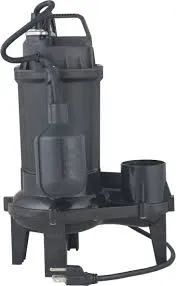English
- Afrikaans
- Albanian
- Amharic
- Arabic
- Armenian
- Azerbaijani
- Basque
- Belarusian
- Bengali
- Bosnian
- Bulgarian
- Catalan
- Cebuano
- Corsican
- Croatian
- Czech
- Danish
- Dutch
- English
- Esperanto
- Estonian
- Finnish
- French
- Frisian
- Galician
- Georgian
- German
- Greek
- Gujarati
- Haitian Creole
- hausa
- hawaiian
- Hebrew
- Hindi
- Miao
- Hungarian
- Icelandic
- igbo
- Indonesian
- irish
- Italian
- Japanese
- Javanese
- Kannada
- kazakh
- Khmer
- Rwandese
- Korean
- Kurdish
- Kyrgyz
- Lao
- Latin
- Latvian
- Lithuanian
- Luxembourgish
- Macedonian
- Malgashi
- Malay
- Malayalam
- Maltese
- Maori
- Marathi
- Mongolian
- Myanmar
- Nepali
- Norwegian
- Norwegian
- Occitan
- Pashto
- Persian
- Polish
- Portuguese
- Punjabi
- Romanian
- Russian
- Samoan
- Scottish Gaelic
- Serbian
- Sesotho
- Shona
- Sindhi
- Sinhala
- Slovak
- Slovenian
- Somali
- Spanish
- Sundanese
- Swahili
- Swedish
- Tagalog
- Tajik
- Tamil
- Tatar
- Telugu
- Thai
- Turkish
- Turkmen
- Ukrainian
- Urdu
- Uighur
- Uzbek
- Vietnamese
- Welsh
- Bantu
- Yiddish
- Yoruba
- Zulu
Telephone: +86 13120555503
Email: frank@cypump.com
Nov . 21, 2024 03:15 Back to list
chemical processing pumps
Understanding Chemical Processing Pumps Essential Tools in Industrial Applications
In the world of industrial manufacturing, chemical processing plays a pivotal role in the production of a wide range of products, from pharmaceuticals to petrochemicals. At the heart of these operations are chemical processing pumps, which are critical for the efficient and safe movement of various liquids and slurries. This article explores the significance of chemical processing pumps, their types, and the key considerations for selecting the right pump for specific applications.
Chemical processing pumps are designed to handle corrosive and abrasive fluids while maintaining the integrity of the materials being transported. The demand for these pumps has increased with the growth of the chemical industry, as more complex processes require tailored pumping solutions to meet specific operational needs.
Types of Chemical Processing Pumps
There are several types of pumps commonly used in chemical processing applications, each with unique advantages
1. Centrifugal Pumps These are the most widely used pumps in the chemical industry. They operate by converting rotational energy from a motor into kinetic energy, which pushes the fluid through the pump. Centrifugal pumps are ideal for low-viscosity fluids and are known for their durability and efficiency.
2. Positive Displacement Pumps Unlike centrifugal pumps, positive displacement pumps move fluid by trapping a fixed volume and forcing it into the discharge pipe. This makes them suitable for high-viscosity fluids and applications where precise flow control is essential. Examples include gear pumps and diaphragm pumps.
3. Peristaltic Pumps These pumps work by compressing a flexible tube, pushing the fluid contained within it. They are particularly valuable in applications where hygiene is crucial, as they minimize the risk of contamination. Peristaltic pumps are commonly used in the food and pharmaceutical industries.
chemical processing pumps

Key Considerations for Pump Selection
Selecting the right chemical processing pump involves several critical factors
1. Fluid Properties Understanding the characteristics of the fluid being pumped, such as viscosity, temperature, and corrosiveness, is essential. This information determines the pump's material construction and type.
2. Flow Rate and Pressure Identifying the required flow rate and the pressure at which the fluid needs to be moved is crucial. This affects the choice between centrifugal and positive displacement pumps.
3. Maintenance and Reliability Chemical processing environments can be harsh, so choosing a pump that is easy to maintain and offers reliable performance is vital. Regular maintenance will ensure longevity and efficiency.
4. Safety Standards Given the potentially hazardous nature of the chemicals involved, selecting pumps that comply with industry safety standards and regulations is critical to ensure the safety of workers and the environment.
In conclusion, chemical processing pumps are indispensable in the manufacturing and handling of chemicals, contributing to efficiency and safety in various industrial applications. By understanding the different types of pumps available and the critical factors for selection, industries can optimize their operations and achieve better results in chemical processing. Properly chosen and maintained pumps not only enhance productivity but also ensure that operations run smoothly in a challenging environment.
-
ISG Series Vertical Pipeline Pump - Chi Yuan Pumps Co., LTD.|Advanced Hydraulic Design&Energy-Efficient Solutions
NewsJul.30,2025
-
ISG Series Vertical Pipeline Pump - Chi Yuan Pumps Co., LTD.
NewsJul.30,2025
-
ISG Series Vertical Pipeline Pump - Chi Yuan Pumps Co., LTD.|energy-efficient fluid handling&industrial durability
NewsJul.30,2025
-
ISG Series Vertical Pipeline Pump - Chi Yuan Pumps | Advanced Engineering&Industrial Efficiency
NewsJul.30,2025
-
ISG Series Pipeline Pump - Chi Yuan Pumps | High Efficiency, Energy Saving
NewsJul.30,2025
-
ISG Series Vertical Pipeline Pump-Chi Yuan Pumps|High Efficiency&Reliable Performance
NewsJul.29,2025










